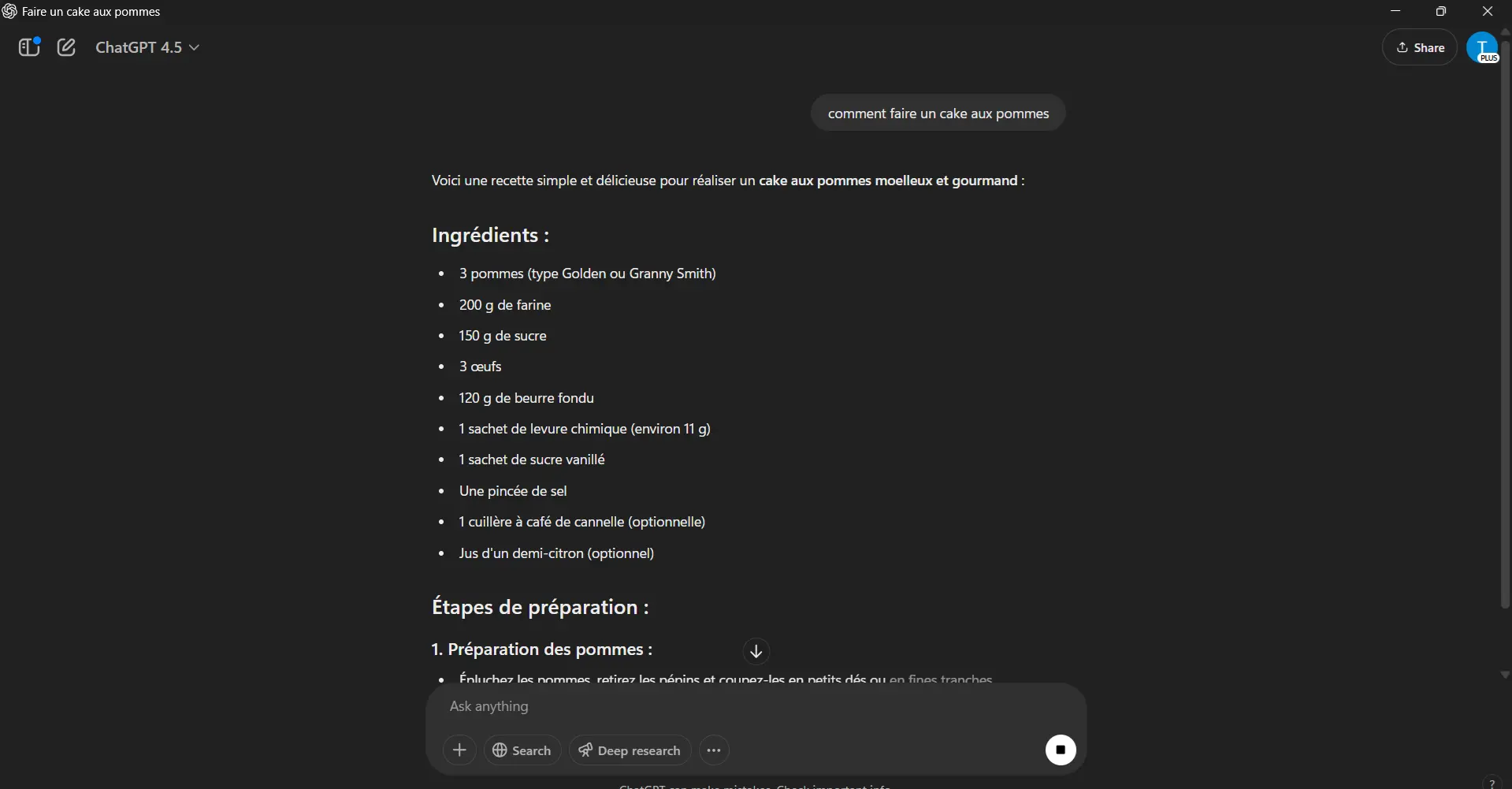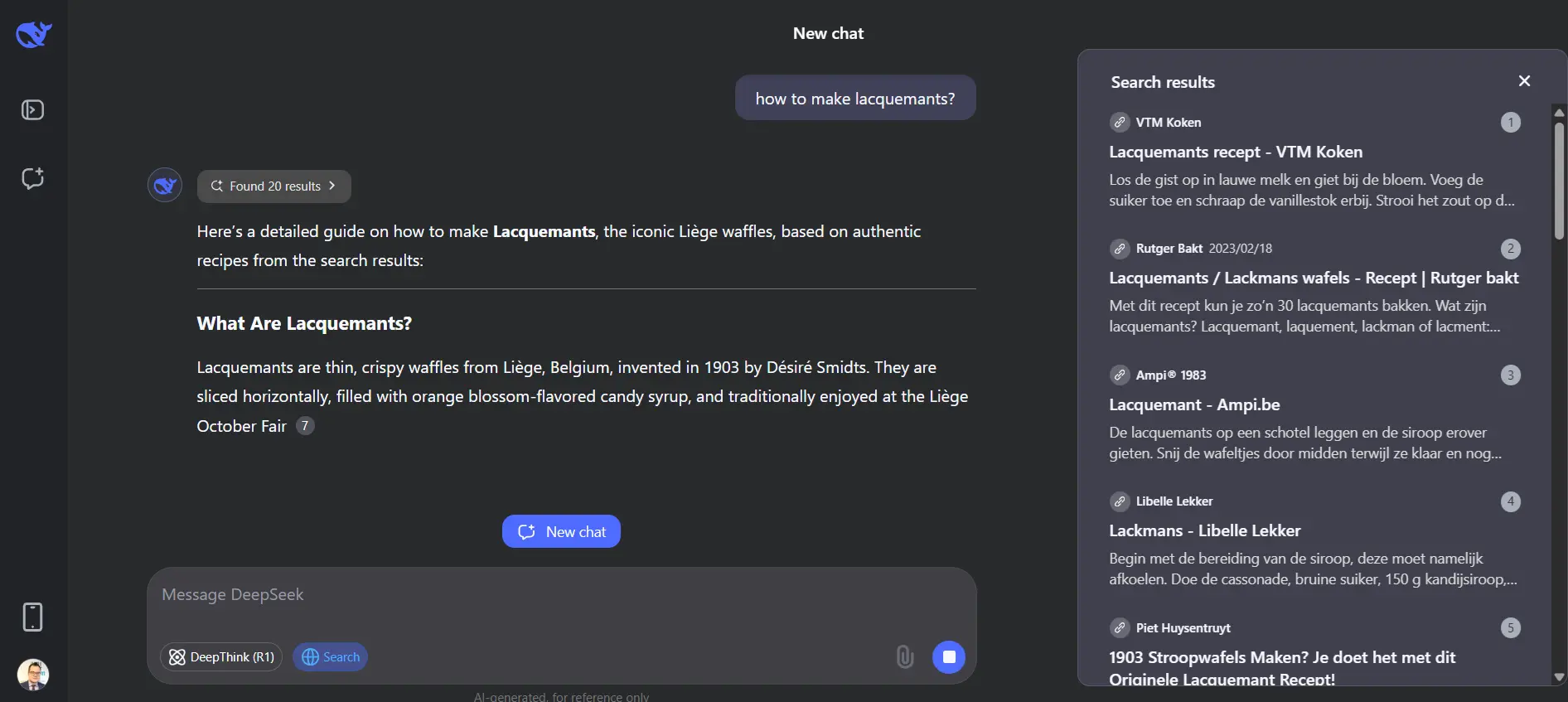The New Search A.I. Solutions ⚙️
🔍 The end of traditional search engines?
Generative A.I. is transforming the way we access information. While legacy search engines are rushing to integrate it, new tools entirely built on this technology are already emerging. Some even predict the imminent end of the “old” traditional search engines.
What are the different types of A.I. Search solutions?
Generative AI solutions can be categorized into static solutions (GPT-4o without web search), where the model has been trained on data up to a certain point, and live solutions, where the model can use a search engine to extract relevant information while leveraging its training to generate output.
While static solutions can answer many academic and informational questions and even assist with tasks such as correcting code or content, the lack of recent data poses a real issue in the case of Search. How can one obtain information on the latest prices, promotions, the address of a popup store, details about a specific event, etc.?
It is therefore absolutely no surprise that OpenAI, Mistral, Deepseek, and Gemini all offer “Search” options to enable web searches. Other solutions, like Perplexity, are entirely built around this capability: searching and using information to generate a relevant response.
Are generative A.I. Search solutions completely different from traditional search engines?
It’s important to clarify that this kind of solution is, ultimately, not fundamentally different from a traditional search engine.
The A.I. tool relies on its acquired knowledge from training and, most importantly, on the retrieved knowledge injected into the prompt.
The heart of everything remains the index. Without an index, you can’t deliver fresh and relevant results. ChatGPT’s Search function, for instance, uses Bing’s index and other specific sources. Of course, the future may bring surprises, but it still seems difficult to bypass the step of crawling and indexing the web to gather information (unless, one day, advertisers themselves must provide content directly to the tool in order to be visible).
Generative A.I. solutions combined with Search therefore seem much more like an enhancement than a complete revolution, and making sure you’re properly positioned in the index remains critical.
Is Generative A.I. Replacing Google?
As we mentioned at the beginning of the article, it is frequently said that Google is living its last hours and that these new solutions will, quickly, make the web giant disappear.
Datos, a company specialized in data analysis based on a statistically relevant sample in the USA, has shown that Google continues to grow in 2024 (>20%). The growth of generative AI tools is even stronger, but this is not a zero-sum game. A search on ChatGPT may not necessarily mean one less query on Google.
VOLUME COMPARISON
As of early 2025, Google’s market share is still >90% with around 14 billion searches per day vs ~37.5 million for ChatGPT, which is ~370 times less.
Finally, it also seems interesting to mention that referral traffic from ChatGPT remains low, except in specific cases and on very large platforms (Amazon, Wikipedia, YouTube, GitHub, …). Therefore, it is tricky to consider this source as a true traffic driver by default.
However, in a world where attribution is becoming increasingly complex, it is important to follow this data and analyze it to draw your own conclusions, which may vary for each advertiser, particularly those whose personas have already heavily adopted generative AI tools (e.g., marketing profiles or more educated ones).
To conclude, preaching the end of Google seems clearly exaggerated, even though major changes could always occur. This could only come from Google itself, making a clear choice to prioritize this new approach for presenting answers to queries. Given that all tools still need an index (for now) and that Google’s is, by far, the largest, it’s hard to imagine it losing ground quickly.
How to Get Ready?
With market shares still extremely low (~0.25% in the U.S. for ChatGPT, including SearchGPT in the calculation), it’s difficult to position these new solutions as central in a digital strategy. However, here are a few interesting points:
Include clear and precise tracking
Having a view of sessions (and potentially conversions) generated by these new tools is a good starting point. However, it is important, before being disappointed, to remember their low penetration (for now).
Track the market share evolution
Having an overview of the evolution of these tools’ usage allows for better preparation. If ChatGPT is integrated into SIRI, opening up a market of millions of users, or if Google directly integrates Gemini on the Google homepage, it is clear that things could change quickly.
Worry a bit more about Bing results
Since SearchGPT partially uses Bing search results and Bing also has market shares (albeit minimal), it seems worth looking, even briefly, at the results obtained on this platform. The Bing Webmaster tool, the equivalent of Google Search Console, is a good starting point.
Explore the given results
Nothing like conducting your own research on these platforms to see the generated results and better prepare yourself. Try to understand why one result is highlighted over another. Does it better meet the user’s intent? Does it contain more information? Is it simply ranked higher in a search engine that the AI tool uses?





